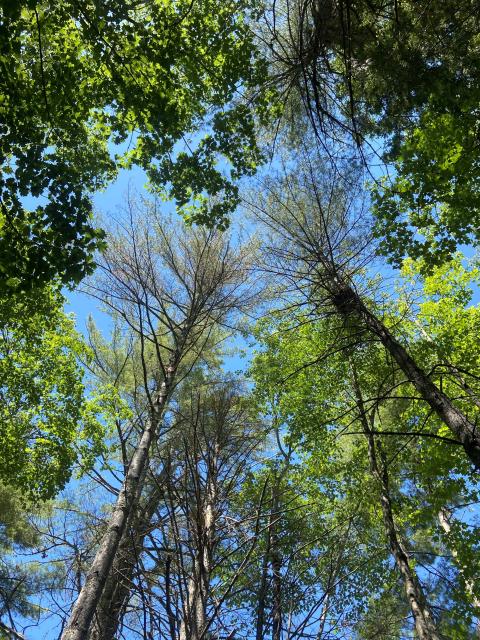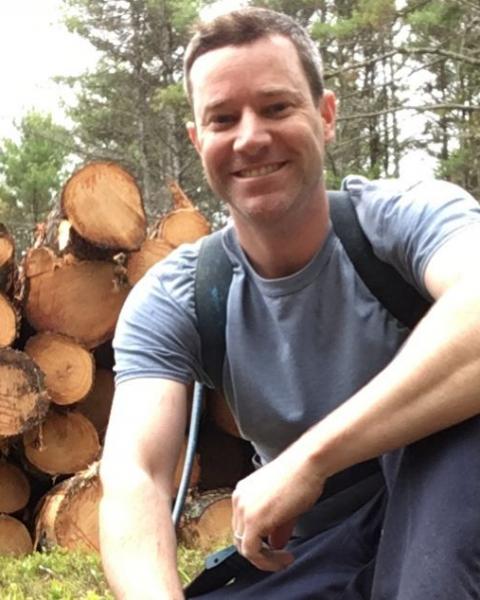Why are my White Pines Turning Yellow?

Needlecast disease may leave Eastern white pine crowns looking unnaturally “thin.” Healthy trees will respond with a new flush of needles.
In recent weeks, many landowners have contacted UNH Extension worried about the sudden appearance of yellowing – and prematurely dropping – Eastern white pine (Pinus strobus L.) needles in their woods and around their yards. Although the symptoms are showing now, much of the damage can be linked to a few species of fungi that infected pine needles during the very wet spring and summer of 2023. These fungi cause “white pine needle disease” or “white pine needlecast” which leads to infected pine needles being shed or “cast” in the spring and summer months instead of in the autumn (see the UNH Extension blog Falls is for Pines, Too to learn more).
Instead of holding two- or three-year’s worth of foliage, white pines with severe needlecast hold only one-year’s growth of needles. This makes tree crowns look unnaturally thin; however, the disease is not likely to lead to long-term tree health problems. Most trees will recover by the end of this summer.
Woodlot owners might find that their pines grow a bit less in 2024 due to the loss of photosynthetic capacity. Maintaining properly thinned pine stands will help keep trees vigorous and increase sunlight and airflow which reduces the incidence of needlecast disease. In landscape settings, tree owners can provide their pines with supplemental water during summer dry spells to help aid in their recovery.
If you have questions about the health of your pines, check out nhbugs.org or contact your County Forester for more information.
Have a question about your woods? Contact your Extension County Forester today!
Do you love learning about stuff like this? Subscribe to the NH Woods & Wildlife Newsletter.
A quarterly newsletter providing private woodlot owners in New Hampshire with woodlot management news, pest updates, resources, and more.
